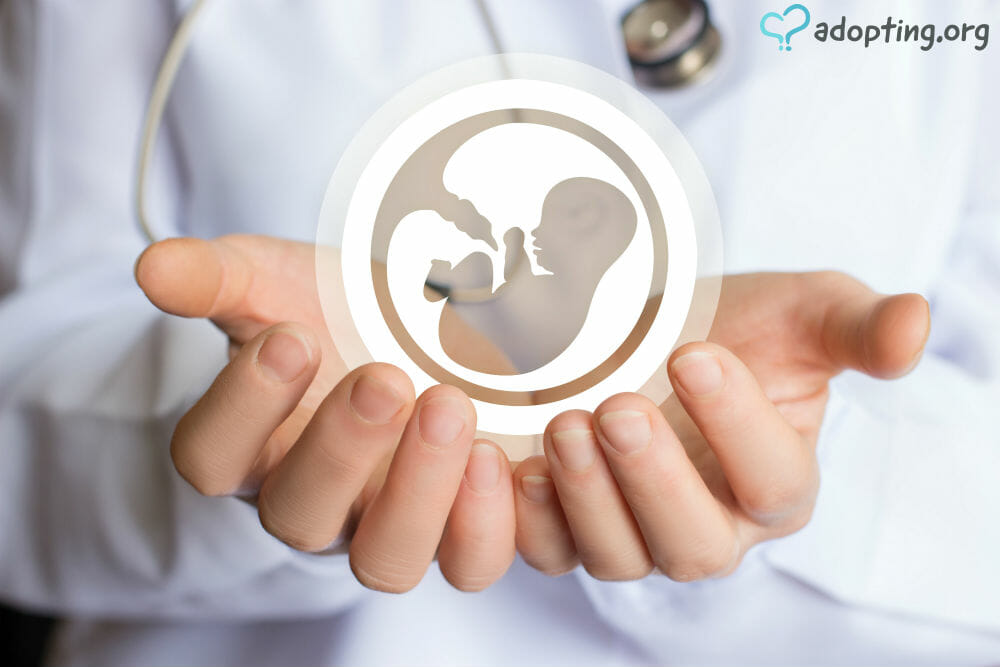
Embryo adoption is becoming increasingly popular throughout the United States. While not technically or legally considered adoption, its end is for a couple to raise a child who is not genetically theirs, thus earning the term “adoption.”
Embryo adoption occurs when a couple who has been undergoing fertility treatments donates unused, frozen embryos to another couple who is trying to conceive. It is favorable to some couples for a variety of reasons.
Why Embryo Adoption?
Generally speaking, embryo adoption is less costly than In Vitro Fertilization, and it allows a couple struggling with infertility to provide life and a home to a frozen embryo.
Some couples choose embryo adoption because the sperm or egg quality has been proven to be the cause of infertility. For many of these couples, the issue of a future child being genetically related to one parent and not the other is is a sensitive subject. Similarly, if there is a concern about passing on a genetic disorder to your child, embryo adoption creates neutrality in terms of the genetic material being passed to the infant.
Mothers who adopt embryos often place a high value on pregnancy and childbirth experiences. They want to be able to experience the joy and pain of having life growing inside them, and bonding with the child before birth through sound and movement. They can also be careful to take excellent prenatal care of the child, being certain that he/she is not exposed to drugs or alcohol and providing proper nutrition.
How Can an Embryo Be Adopted?
Embryos can be adopted through a clinic donation program or an adoption agency program. If you are unsure where to start, your reproductive endocrinologist, fertility treatment center, or OB/GYN will be able to provide you with some local resources. Some agencies and clinics will require that you travel to their location, while others will allow you to work with a doctor of your choice.
If you are working with an agency, such as Nightlight Christian Adoptions or the American Embryo Adoption Agency, there are several advantages. They will retain legal records of the adoption and coordinate with fertility clinics regarding medical testing by the FDA and shipment of embryos. They will also allow you to meet the donating family and learn about their genetics, habits, and interest in donating their embryo.
You will receive training on parenting a child who is not genetically yours, and the program is usually 80% education and 20% screening. It helps provide peace of mind to the donating family that their embryo is being placed in a strong, loving home.
Both families agree upon the amount of communication that will take place after the child is born. You may wish to exchange texts, pictures, or emails on special occasions like birthdays, or you may wish to have a closer relationship with the donating family. Information regarding genetics is usually important to children once they reach adolescence and adulthood.
A legally binding contract agreement is signed between families. The genetic parents no longer have any legal claim to resultant children from the embryo transfer.
Your adoption agency will have embryos available when you sign with them. In the United States alone, there are currently over 600,000 frozen embryos.
If you choose to adopt through a clinic, you will not be given much information about the donor. There will be little communication between the donating and adoptive families, and the legal records are not maintained by the clinic. The adopting family will need to assume the responsibility for making sure the legal documents are signed, and the donating family no longer has legal rights to the embryo. The wait time varies at different clinics.
How Much is Embryo Adoption?
The donating family does not receive payments if their embryo is adopted. They are responsible for storage IVF and storage fees before the embryo is adopted. The adopting family may have to pay storage fees after an agreement is signed. [dfp_ads id=47]
Fees for embryo adoption include a home-study fee ($1,500-$3,000) and embryo transfer ($3,500-$6,000). These vary greatly, depending on your agency and state. If you choose to use an agency, a cost of $2,500 to $10,000 includes legal fees, embryo shipping, matching services, counseling, additional medical screening, cycle preparation fee, consultations, and document preparation. The total cost of $7,500 to $19,500 is less than in-vitro fertilization, most domestic adoptions, and international adoptions. Many companies provide employer assistance for embryo adoption the way they would for in vitro fertilization. The adoption tax credit does not apply toward embryo adoption.
What is the Success Rate For Embryo Adoption?
The rate of pregnancy after embryo adoption is 50%, and the national average birth rate is 40%, which is higher than the 30% success rate for IVF. Like IVF, the chance of having multiples is higher with embryo adoption than it would be with natural conception and stands at 30%. Factors such as donor age at the time of retrieval and a good prognosis factor into these odds.
Sometimes, couples who have had a successful birth with one embryo may be given another from the same donor so that they can have genetically related siblings.
If embryo adoption sounds like it will be right for you, talk to your doctor today. Your new child could be waiting for you!



